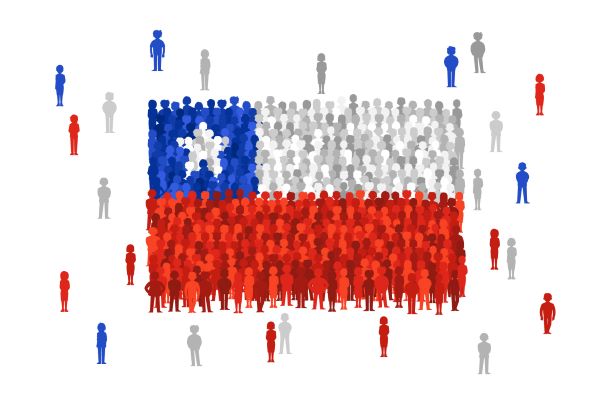Education with social justice: Dialogic community classrooms in Chile
DOI:
https://doi.org/10.18504/pl3264-006-2024Keywords:
community education, social justice, recognition, parity, participation, formal educationAbstract
Social justice is a relevant issue in current Chilean society, particularly for the community classroom experiences that make up this research. These dialogical classrooms are experiences that aim to reverse the injustices that are present in the Chilean formal educational system. This study aims to reveal if these classrooms can advance in social justice of reciprocal recognition and participatory parity, based on a four-year study in eight community classrooms spread along the country, through a type of participatory research. The findings reveal important achievements in social relationships among people in the community and school, together with structural changes that impact the curriculum.
Downloads
References
Angit, S., & Jarvis, A. (2024). An Indigenous view of social justice leadership in the Malaysian education system. AlterNative: An International Journal of Indigenous Peoples, 20(1). https://doi.org/10.1177/11771801241235422 DOI: https://doi.org/10.1177/11771801241235422
Bellei, C. (2016). El gran experimento. Mercado y privatización de la educación chilena. LOM.
Brown, M., Altrichter, H., Shiyan, I., Rodríguez, M. J., McNamara, G., Herzog-Punzenberger, B., Vorobyeva, I., Vangrando, V., Gardezi, S., O’Hara, J., Postlbauer, A., Milyaeva, D., Sergeevna, N., Fulterer, S., Gamazo, A., & Sánchez, L. (2022). Challengues and opportunities for culturally responsive leadership in schools: Evidence from Four European countries. Policy Futures in Education, 20(5), 580-607. https://doi.org/10.1177/14782103211040909 DOI: https://doi.org/10.1177/14782103211040909
Clarke, G., Douglas, E., House, M., Hudgins, K., Campos, S., & Vaughn, E. (2022). Empowering Indigenous communities through a participatory evaluation of a federal program for older Americans. American Journal of Evaluation, 43(4), 484-503. https://doi.org/10.1177/10982140211030557 DOI: https://doi.org/10.1177/10982140211030557
Echeverría, P. (2022). Revisiting the sense of education from a critical perspective to contribute to social justice. Power and Education, 15(2), 122-131, https://doi.org/10.1177/17577438221116030 DOI: https://doi.org/10.1177/17577438221116030
Fals Borda, O. (2017). Socialismo raizal y el ordenamiento territorial. Desde Abajo.
Ferrada, D. (2020). Dialogic pedagogy linking worlds: participatory community classrooms. Pedagogy, Culture & Society, 28(1), 131-146. https://doi.org/10.1080/14681366.2019.1615534 DOI: https://doi.org/10.1080/14681366.2019.1615534
Ferrada, D. (2017). La investigación participativa dialógica. En S. Redón Pantorra & J. Rasco Angulo (Eds.), Metodología cualitativa en educación (pp. 187-201). Miño y Dávila.
Ferrada, D., & Del Pino, M. (2021). Transformando el menosprecio en reconocimiento. Comunidades escolares movilizadas. Revista Internacional de Educación para la Justicia Social, 10(1), 211-225. https://doi.org/10.15366/riejs2021.10.1.013 DOI: https://doi.org/10.15366/riejs2021.10.1.013
Ferrada, D., & Del Pino, M. (2018). Dialogic-kishu kimkelay ta che educational research: participatory action research. Educational Action Research, 26(4), 533-549. https://doi.org/10.1080/09650792.2017.1379422 DOI: https://doi.org/10.1080/09650792.2017.1379422
Ferrada, D., Del Pino, M., Astorga, B., Dávila, G., & Rojas, B. (2021). Los principios de reconocimiento recíproco y paridad participativa para una educación con justicia social en la nueva Constitución. En D. Ferrada (Ed.), Educación con justicia social: propuestas para una nueva Constitución en Chile (pp. 20-39). Universidad Católica del Maule.
Ferrada, D., Jara, C., & Seguel, A. (2023). The transformation of the curriculum in the Linking Worlds Dialogic Pedagogy. Dialogic Pedagogy: A Journal for Studies of Dialogic Education, 11(1), A108-A128. https://doi.org/10.5195/dpj.2023.536 DOI: https://doi.org/10.5195/dpj.2023.536
Fraser, N. (2018). La justicia social en la era de la política de la identidad: Redistribución, reconocimiento y participación. En N. Fraser & A. Honneth ¿Redistribución o reconocimiento? (pp. 17-88). Morata.
Fraser, N. (2016). ¿De la redistribución al reconocimiento? Dilemas de la justicia en la era postsocialista. En J. Butler & N. Fraser (2016). ¿Reconocimiento o redistribución? Un debate entre marxismo y feminismo (pp. 23-66). Traficantes de Sueños.
Fraser, N. (2008). Escalas de justicia. Herder.
Fraser, N., & Honneth, A. (2018) ¿Redistribución o reconocimiento? Morata.
Gayá Wicks, P., & Reason, P. (2009). Initiating action research: Challenges and paradoxes of opening communicative space. Action Research, 7(3), 243-262. https://doi.org/10.1177/1476750309336715 DOI: https://doi.org/10.1177/1476750309336715
Guba, E., & Lincoln, Y. (2012). Controversias paradigmáticas, contradicciones y confluencias emergentes. En N. Denzin & Y. Lincoln (Eds.), Manual de investigación cualitativa (Vol. II, pp. 38-78). Gedisa.
Henderson, L., Hawkins, E., Corporal, S., Graham, J., Kruger, C., Ngugi., Marshall, A., Marshall, J., West, K., & Shanley, D. (2024). A theoretical conceptualisation of connection to culture in Australian First Peoples children. AlterNative: An International Journal of Indigenous Peoples, 20(1). https://doi.org/10.1177/11771801241235391 DOI: https://doi.org/10.1177/11771801241235391
Honneth, A. (2019). Reconocimiento. Una historia de las ideas europea. Akal.
Honneth, A. (2018) Redistribución como reconocimiento: respuesta a Nancy Fraser. En N. Fraser & A. Honneth, ¿Redistribución o reconocimiento? (pp. 89-148). Morata.
Honneth, A. (1997). La lucha por el reconocimiento: por una gramática moral de los conflictos sociales. Crítica.
Ministerio de Salud. (2006). Ley Nº 20120. Sobre la investigación científica en el ser humano, su genoma, y prohíbe la clonación humana. Congreso Nacional de Chile. https://bcn.cl/2fe0y
Ramos, M., Bellei, C., Canales, M., Contreras, M., Guajardo, F., & Orellana, V. (2022). Educación: la promesa incumplida. Esfuerzo, miedos y esperanzas de las familias chilenas en el mercado escolar. Catalonia.
Rawls, J. (2018). La justicia como equidad. Paidós.
Revuelta, B., & Hernández-Arencibia, R. (2019). La teoría de Axel Honneth sobre justicia social, reconocimiento y experiencias del sujeto en las sociedades contemporáneas. Cinta moebio, (66), 333-346. https://doi.org/10.4067/S0717-554X2019000300333 DOI: https://doi.org/10.4067/s0717-554x2019000300333
Rojas, M., & Charles-Leija, H. (2022). Chile, milagro de crecimiento económico, pero… ¿y el bienestar? Perfiles Latinoamericanos, 30(59). doi: dx.doi.org/10.18504/pl3059-005-2022 DOI: https://doi.org/10.18504/pl3059-005-2022
Salazar, G. (2019, 27 de octubre). El «reventón social» en Chile: una mirada histórica. CIPER. https://www.ciperchile.cl/2019/10/27/el-reventon-social-en-chile-una-mirada-historica/
Sandel, M. (2020). La tiranía del mérito ¿Qué ha sido del bien común? Debate.
Vélez, F. (2018) ¿Meritocracia?¿Para quienes? Isonomía, (48), 147-167. https://doi.org/10.5347/48.2018.40 DOI: https://doi.org/10.5347/48.2018.40
Wong, K., Briffett-Aktaş, C., Kong, W., & Ho, C. (2023). The student voice for social justice pedagogical method: Learning outcomes and challenges. Active Learning in Higher Education, 1-5. https://doi.org/10.1177/14697874231176488 DOI: https://doi.org/10.1080/13562517.2023.2183770

Downloads
Published
Citas a este artículo:
How to Cite
Issue
Section
License
Copyright (c) 2024 Facultad Latinoamericana de Ciencias Sociales, sede México

This work is licensed under a Creative Commons Attribution-NonCommercial 4.0 International License.
![]() Esta obra está bajo una licencia Atribución-NoComercial 4.0 Internacional (CC BY-NC 4.0)
Esta obra está bajo una licencia Atribución-NoComercial 4.0 Internacional (CC BY-NC 4.0)










